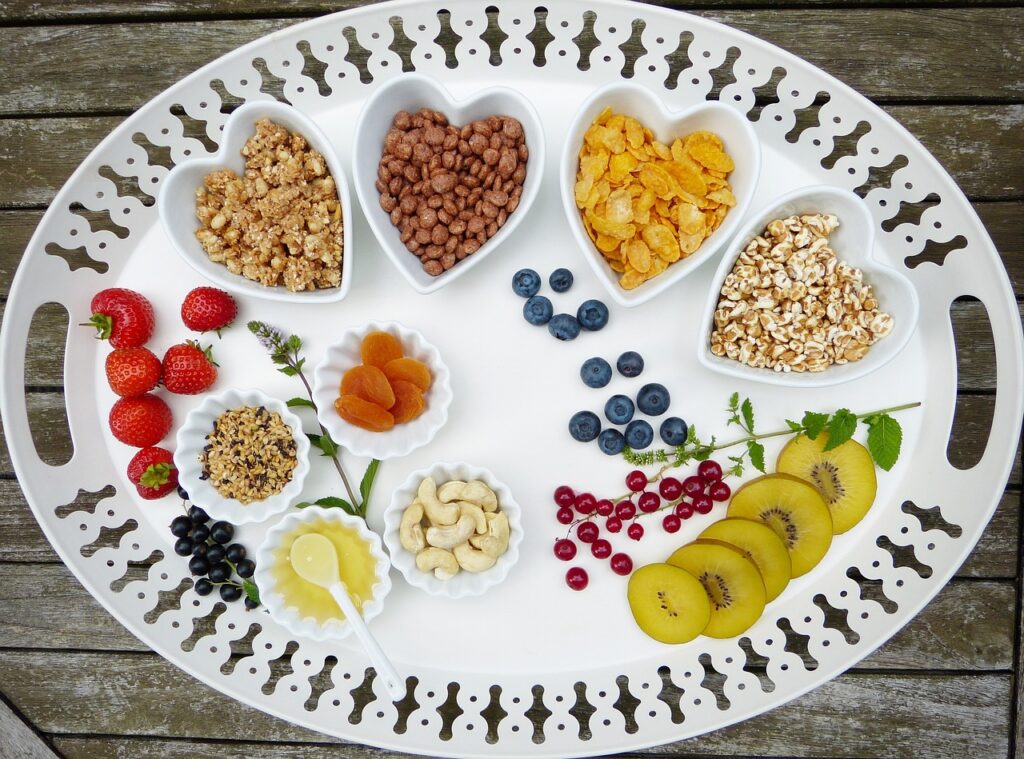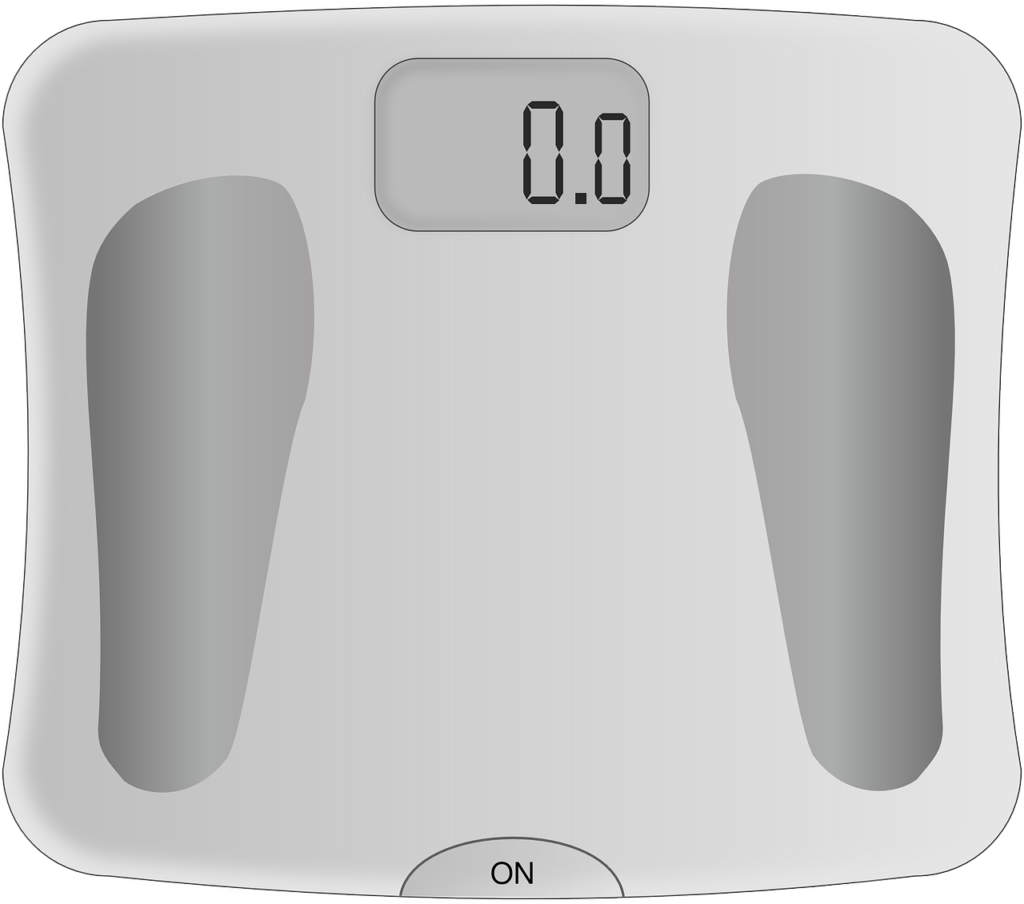
Introduction
Welcome to “Diet Planning: The Ultimate Guide,” your comprehensive resource for creating a well-balanced and sustainable diet. In a world filled with fad diets and contradicting information, navigating the world of nutrition is overwhelming. But fear not because this guide simplifies the process, empowers you with knowledge, and helps you make informed choices about what you eat.
In this blog post, we dive deep into diet planning. Whether you aim to lose weight, improve your overall health, or adopt healthier eating habits, this guide will provide practical insights, tips, and strategies to achieve your goals. We’ll explore important aspects of nutrition, dispel common myths, and provide actionable steps to support your journey toward a healthier lifestyle.
Join us as we break down the art of diet planning and equip you with the tools you need to make wise dietary decisions. By the end of this Diet Planning Ultimate Guide, you’ll have a solid foundation of knowledge. And the confidence to create a diet plan that suits your unique needs.
So, whether you’re a beginner looking to kick-start your dietary transformation or someone seeking to enhance their eating habits, this blog post will be your ultimate companion. Together, let’s uncover the secrets to sustainable and effective diet planning.

Diet Planning: The Ultimate Guide
Defining Diet Planning
“Diet planning” refers to making choices and deciding what to eat to meet specific goals. Specific goals that are related to your health, nutrition, and well-being, like food and drinks that you consume regularly,
Diet planning is essential because it helps us maintain a balanced and nutritious diet. Which is crucial for our growth, development, and overall health. This helps provide our body with energy, vitamins, minerals, and other nutrients to function correctly.
Selecting and Organizing Your Food
Diet planning is carefully selecting and organizing your foods to meet your nutritional goals. Whether you want to shed a few pounds or build muscle, effective diet planning will improve your health.
Diet planning involves creating a structured and balanced eating plan that considers many factors. Macronutrient distribution, portion control, meal frequency, and food group inclusion When diet planning, you think about your calorie requirements, aiming for a balanced diet to achieve weight management goals.
Portion Control
Portion control is another aspect of diet planning. It means being mindful of how much food we consume each meal to avoid overeating or undereating. Overeating can lead to weight gain or other health issues, while eating too little may result in nutrient deficiencies and a lack of energy.
When planning a diet, we should consider a few key factors. First, the types of food we choose should be diverse and include a variety of fruits, vegetables, whole grains, lean proteins, and healthy fats. These food groups provide essential nutrients our body needs to grow, repair, and stay fit.
Additionally, diet planning involves considering individual needs and preferences. Some people might have specific dietary requirements due to allergies, intolerances, or medical conditions.
Macronutrient Distribution and Food Group Inclusion
Macronutrient distribution includes carbohydrates, proteins, and fats to ensure peak bodily functions. Whereas food group inclusion involves incorporating necessary nutrients, vitamins, and minerals. While limiting processed foods with added sugars and excessive sodium.
Ultimately, diet planning aims to create a sustainable and balanced eating pattern. That supports specific dietary objectives, such as weight loss, muscle gain, or managing certain health conditions. It is always recommended to seek guidance from healthcare professionals or registered dietitians when developing an effective and personalized diet plan.

The Benefits of Effective Diet Planning
Improved Health:
- A well-balanced diet can reduce the risk of chronic diseases such as heart disease, diabetes, and obesity.
Weight Management:
- Diet planning helps to achieve and maintain a healthy weight.
Increased Energy:
- Proper nutrition fuels your body, enhancing your daily vitality.
Unleashing The Power Of Effective Diet Planning
A Journey Towards Improved Health, Weight Management and Increased Energy
Improved Health: A Fortress Against Chronic Diseases
One of the most prominent benefits of effective diet planning is the potential to fortify our bodies against various chronic diseases. We empower our immune systems and bolster our defenses by fueling ourselves with diverse, nutrient-rich foods.
A well-balanced diet can significantly reduce the risk of heart disease, diabetes, and obesity, allowing us to take charge of our long-term well-being and thrive in adversity.
Weight Management: Shaping a Healthy You
Effective diet planning offers a powerful ally in our quest to achieve and maintain a healthy weight. By carefully curating our food choices and portions, we can take control of our bodies. Diet planning helps us strike a harmonious balance between calorie intake and expenditure.
Ensuring we create a sustainable and nourishing approach to weight management. No more chasing fad diets or succumbing to quick-fix solutions; with effective diet planning, we can sculpt a healthy physique and embrace a lifestyle that honors and cherishes our bodies.
Increased Energy: Igniting the Fire Within
Proper nutrition lies at the heart of igniting the fire within us and unleashing a torrent of boundless energy. When we provide our bodies with the essential nutrients they crave, we fuel them to function optimally.
Effective diet planning equips us with the tools to incorporate a diverse range of energy-boosting foods. From carbohydrates to lean proteins and healthy fats.

Key Principles of Diet Planning
Balancing Macronutrients
Creating A Balanced Diet Plan
To create a balanced diet plan, focus on balancing macronutrients: carbohydrates, proteins, and fats. Balancing macronutrients means consuming the proper amount of carbohydrates, proteins, and fats to promote good health.
Balance Among Three Macronutrients
It is essential to balance these three macronutrients, as each plays an important role. Carbohydrates provide energy, proteins aid tissue repair and muscle growth, and fats support brain function and help absorb essential vitamins.
By striking the right balance, you can maintain a healthy weight, support your immune system, and reduce the risk of chronic diseases.
Portion Control and Meal Frequency
Prevents Overeating
Controlling portion sizes and meal frequency helps manage calorie intake and prevent overeating. Eating smaller, more frequent meals can boost metabolism. Portion control and meal frequency are vital to maintaining a healthy and balanced diet.
Portion Control
Portion control refers to the practice of eating the correct serving size of food. To meet our nutritional needs without exceeding calorie requirements. It helps prevent overeating and can aid in weight management. Being mindful of portion sizes helps ensure you get the right amount of macronutrients and reduces the risk of consuming too many calories.
Meal Frequency
Meal frequency relates to the number of meals and snacks consumed throughout the day. Establishing regular meal times and including healthy snacks can help regulate blood sugar levels and provide a consistent energy flow throughout the day.
Finding The Right Balance
Finding the right balance between portion control and meal frequency depends on factors such as activity level, metabolism, and personal preferences. It also prevents excessive hunger and reduces the likelihood of indulging in unhealthy food choices or overeating during main meals.

Incorporating a Variety of Food Groups
A Diverse Diet
Fruits and Vegetables
A diverse diet ensures you get a wide range of essential nutrients. Aim to include fruits, vegetables, whole grains, lean proteins, and healthy fats in your meals. Incorporating a variety of food groups into your diet is crucial for promoting good health and getting the necessary nutrients.
Whole Grains and Lean Proteins
Each food group offers distinct nutritional benefits, including fruits, vegetables, whole grains, lean proteins, and dairy (or dairy alternatives). Consuming different food groups can enhance the enjoyment of meals, prevent dietary monotony, and reduce the risk of nutrient deficiencies.
Therefore, incorporating a variety of food groups is key to achieving a well-rounded and balanced diet. Ensuring that our bodies receive a wide range of vitamins, minerals, and antioxidants necessary for maintaining a strong immune system, healthy weight, and optimal organ function.
Understanding Your Body's Needs
Involves Recognizing and Acknowledging the Specific Nutritional Requirements
This includes gaining knowledge about the essential nutrients, vitamins, and minerals your body needs and understanding the impact of factors such as age, sex, activity level, and health conditions on your dietary needs.
Understanding Your Body's Needs is lmportant
1. Caloric Intake: Understanding your daily caloric needs based on factors like age, weight, height, activity level, and goals is essential. Consuming the appropriate number of calories helps maintain a healthy weight and provides sufficient energy for daily activities.
2. Macronutrients: Identifying the ideal distribution of carbohydrates, proteins, and fats in your diet is key. Carbohydrates provide energy, proteins support tissue repair and growth, and fats affect nutrient absorption and hormone production. Balancing these macronutrients based on your individual needs and goals is crucial.
3. Micronutrients: Recognizing the importance of vitamins, minerals, and antioxidants is vital for overall health. Learning which foods contain these nutrients and ensuring their inclusion in your diet can help prevent deficiencies and support various bodily functions.
4. Hydration: Understanding the significance of staying adequately hydrated is essential for your body’s functioning. Knowing how much water you should consume daily and recognizing the signs of dehydration can help maintain proper hydration levels.
5. Listening to Your Body: Paying attention to hunger and fullness cues and any specific dietary preferences or intolerances is crucial to meeting your body’s unique needs. This includes understanding how different foods make you feel and recognizing potential allergies or sensitivities.
6. Health Considerations: Considering any specific health conditions or dietary restrictions you have can help tailor your diet to meet your body’s needs. This may require consulting with a healthcare professional or registered dietitian to ensure you follow an appropriate eating plan.
Consulting with professionals can always aid in understanding and aligning your diet with your body’s requirements. It is important to remember that everyone’s needs are unique, and what works for one person may not work for another.

Dietary Guidelines
Dietary guidelines are evidence-based recommendations by health organizations and governments to promote optimal nutrition and health.
These guidelines serve as a framework to help individuals make informed food choices and develop healthy eating habits. Government-recommended guidelines can serve as a starting point for diet planning. However, customization is key to meeting your unique needs. Some critical aspects of dietary guidelines include:
1. Food Groups: Dietary guidelines typically outline the importance of consuming a variety of food groups to ensure a balanced and nutritious diet. This may include recommendations for fruits, vegetables, whole grains, lean proteins, and healthy fats while limiting added sugars, sodium, and saturated fats.
2. Portion Sizes: Dietary guidelines often guide portion sizes to help individuals consume the right amount of food for their energy needs. This helps prevent overeating and maintain a healthy weight.
3. Nutrient Intake: Guidelines may highlight specific nutrients that individuals should aim to include in their diet, such as fiber, vitamins, and minerals. They may also provide suggestions on food sources that are rich in these nutrients.
4. Hydration: Many dietary guidelines emphasize the importance of staying adequately hydrated and provide recommendations on daily fluid intake.
5. Special Populations: Dietary guidelines may address the nutritional needs of different age groups, pregnant or breastfeeding women, and individuals with certain health conditions, including diabetes, hypertension, or food allergies.
It is important to note that dietary guidelines may vary slightly across countries or organizations, as they are based on regional nutritional patterns, cultural practices, and scientific research specific to each region. Following dietary guidelines can help individuals make informed choices about their diets, improve overall health outcomes, and reduce the risk of chronic diseases associated with poor nutrition.

Types of Diets
There are various types of diets that individuals may follow. Their choice is based on personal goals, health conditions, and preferences. There are many approaches to dieting, each with its own principles, goals, and potential benefits.
Mediterranean Diet
The traditional dietary patterns of Mediterranean countries inspire this eating style. It focuses on whole foods, such as fruits, vegetables, legumes, whole grains, fish, lean meats, nuts, and healthy fats like olive oil. This diet is associated with various health benefits, including heart health and reduced risk of chronic diseases.
Paleo Diet
Based on the presumed eating habits of our ancestors during the Paleolithic era, this diet focuses on whole, unprocessed foods such as lean meats, fish, fruits, vegetables, nuts, and seeds while excluding grains, legumes, dairy, and processed foods. The Paleolithic diet emphasizes nutrient density and can be beneficial for weight loss and improving overall health. However, it can be restrictive and requires careful planning to ensure nutritional adequacy.
Intermittent Fasting
This eating pattern involves alternating periods of fasting and eating. Common intermittent fasting methods include the 16/8 method (fasting for 16 hours and consuming all meals within an 8-hour window) or the 5:2 method (eating normally for 5 days and restricting calorie intake to 500–600 calories for 2 non-consecutive days). Intermittent fasting can aid in weight loss, improve insulin sensitivity, and promote cellular repair, but it may not be suitable for everyone, especially those with certain medical conditions.
Keto Diet
High in fats and low in carbohydrates, they designed the keto diet to shift your body into a state of ketosis for weight loss. Ketogenic (Keto) Diet: This low-carbohydrate, high-fat diet aims to switch the body into a state of ketosis, where it primarily burns fat for energy instead of carbohydrates. It typically restricts carbs while emphasizing high-fat foods like meats, fish, nuts, seeds, and oils.
Vegetarian and Vegan Diets:
Vegetarian diets exclude meat but include plant-based foods like fruits, vegetables, grains, legumes, nuts, and seeds. Vegan diets, on the other hand, exclude all animal products, including dairy, eggs, and honey. Both diets can provide numerous health benefits when well-planned, such as reducing the risk of heart disease, obesity, and certain cancers. However, attention must be given to ensure sufficient intake of key nutrients like iron, vitamin B12, and omega-3 fatty acids.
DASH Diet
The Dietary Approaches to Stop Hypertension (DASH) is a balanced eating plan designed to help individuals lower blood pressure. It emphasizes fruits, vegetables, whole grains, lean protein sources, and low-fat dairy products while limiting sodium, saturated fats, and added sugars. Besides blood pressure control, the DASH diet is also associated with other health benefits, like reducing the risk of heart disease and stroke.
These are just a few examples of the many types of diets out there. It’s important to note that the effectiveness and suitability of a particular diet may vary depending on individual goals, preferences, and health conditions. Always consult with your healthcare provider and seek the advice of a professional or registered dietitian before changing your diet.

Meal Planning
When creating a meal plan, the primary focus is to ensure that each meal is well-balanced and provides a variety of nutrients to support overall wellness.
Carefully consider your specific dietary needs, such as age, gender, activity level, and any existing health conditions.
By incorporating a mix of fruits, vegetables, lean proteins, whole grains, and healthy fats into each meal, I aim to promote proper digestion, boost energy levels, support immune function, and regulate blood sugar levels.
Here's why you should try it:
1. Makes Eating Healthy Easy: Meal planning helps you choose balanced and nutritious meals in advance. It’s like planning what you want to eat, so you’re less likely to grab unhealthy snacks or fast food on a whim.
2. Saves Time: When planning your meals, you don’t have to think about what to eat daily. It’s like having a menu ready, so you spend less time wondering, “What’s for dinner?” and more time doing things you enjoy.
3. Reduces Food Waste: When you plan your meals, you can buy just the right amount of ingredients, which means less food goes to waste. It’s like being a food-saving superhero!
4. Budget-Friendly: Meal planning can help you save money because you can shop for ingredients in bulk and avoid last-minute, expensive takeout. It’s like having your money-saving superpower.
5. Variety and Fun: You can choose different foods and recipes, making your meals more interesting. It’s like having a mini-food adventure every day.
6. Control Over Portions: Meal planning allows you to control how much you eat, which is important for maintaining a healthy weight. It’s like having a built-in portion guide.
7. Independence: Learning to plan your meals is a valuable life skill. It’s like taking a step toward becoming more independent and responsible for your well-being.
8. Less Stress: When you have your meals planned, you’ll feel less stressed about food. It’s like having a secret stress-busting tool.
9. Healthier Habits: Meal planning encourages you to consider what’s good for your body. It’s like training your taste buds to enjoy healthy foods.
10. Better School Performance: Eating well with meal planning can help you concentrate better in school and have more energy for activities you love. It’s like giving your brain the fuel it needs to shine.
In a nutshell, meal planning is like having a super helper that makes eating healthy, saving time and money, and enjoying various foods easier. It’s a great skill to develop, especially as you grow older and take more responsibility for your meals. Try it, and you might find that meal planning becomes your new superpower in the kitchen! 🍏🥦🍝
Weekly Meal Prep Strategies
Planning and preparing meals in advance can save time and help you stick to your diet.
Convenience: Imagine not having to cook every single day. Weekly meal prep makes your life easier because you prepare meals in advance. It’s like having your homemade fast food waiting for you in the fridge. You can reheat and enjoy!
Time Saver: When you prep meals ahead of time, you free up hours during the week that you can spend on other fun activities. It’s like a little gift to your future self – more time to hang out with friends or do things you love.
Healthy Choices: Meal prep lets you control what goes into your meals. You can choose more nutritious ingredients and avoid eating unhealthy fast food or snacks when hungry. It’s an intelligent way to eat better without much effort.
Save Money: Eating out or ordering takeout can be expensive. When you meal prep, you buy ingredients in bulk, often saving you money in the long run. It’s like getting a discount on your food!
Variety: You can plan various meals for the week, so you don’t get bored eating the same thing daily. It’s like having a mini food adventure at home!
Less Stress: No more rushing to figure out what to eat when hungry. With meal prep, you already have your meals ready. It’s like having a food safety net!
Portion Control: You can control the portion sizes when you prep meals. This helps you eat just the right amount and avoid overeating. It’s like having a built-in portion control system.
Learn Cooking Skills: Meal prep can also help you become a better cook. You’ll learn how to prepare different dishes, which can be a handy skill when you grow up and need to cook for yourself.
Healthy Habits: Starting meal prep early in life sets you up for a lifetime of healthy eating habits. It’s like investing in your future health.
Independence: Lastly, it’s a step towards being more independent. You’ll feel proud knowing you can take care of your meals, and it’s a great skill to have as an adult.
So, try weekly meal prep, and you’ll see how it can make your life easier, healthier, and more enjoyable. It’s like a superpower for managing your meals!
Creating Balanced and Nutritious Meals
Each meal should include a source of protein, complex carbohydrates, healthy fats, and plenty of vegetables.

Healthy Food Choices
Healthy food choices are crucial for maintaining overall well-being and preventing various health issues. Individuals can provide their bodies with essential vitamins, minerals, and antioxidants that promote optimal functioning by opting for nutritious foods.
Healthy food choices also help manage weight, reducing the risk of chronic diseases like heart disease, type 2 diabetes, and certain cancers. Additionally, a balanced diet supports a strong immune system, enhances cognitive function, and boosts energy levels, enabling individuals to lead active and productive lives.
By incorporating whole grains, lean proteins, fruits, vegetables, and healthy fats into their diet, individuals can nourish their bodies, improve their quality of life, and increase their chances of longevity. Ultimately, the importance of healthy food choices lies in their profound impact on physical and mental well-being.
Whole grains like quinoa, brown rice, and oats provide essential fiber and nutrients. Incorporating whole grains into your diet can have many health benefits. Whole grains are rich in fiber, vitamins, and minerals and can help reduce the risk of chronic diseases such as heart disease, type 2 diabetes, and certain types of cancer.
Here are a few strategies to incorporate more whole grains into your daily meals:
1. Choose whole-grain options: Opt for whole-grain bread, pasta, crackers, and cereals instead of refined or processed grains. Look for labels explicitly stating “whole-grain” as the first ingredient.
2. Start your day with whole grains: Enjoy a bowl of oatmeal or whole-grain cereal for breakfast. You can add fruits, nuts, or seeds for flavor and nutrients.
3. Swap white rice and pasta: Substitute white rice or pasta with brown rice, quinoa, bulgur, or whole wheat pasta. These options provide more fiber and nutrients.
4. Make whole-grain sandwiches: Use whole-grain bread or wraps for sandwiches. This will increase your fiber intake and provide a healthier option than white bread.
5. Snack on whole grain options: Keep whole grain snacks, such as popcorn, crackers, or granola bars, handy for quick and healthy snacking.
6. Experiment with ancient grains: Try grains like quinoa, amaranth, Farro, or teff. These grains have been around for centuries and offer unique flavors and textures. You can incorporate them into salads and soups or use them as a base for grain bowls.
7. Bake with whole grain flours: Instead of using refined white flour, experiment with whole grain flours like whole wheat, spelt, or oat flour in your baking recipes. You can start by substituting a portion of the refined flour with whole-grain flour and gradually increasing the proportion.
Read labels and be mindful of ingredients. When buying packaged food items, read the labels to check for whole-grain ingredients. Look for terms like whole wheat, whole oats, whole rye, whole barley, or brown rice.
Remember, it’s essential to gradually incorporate whole grains into your diet if you’re not used to consuming them. Start by making small changes and progressively increasing the whole grains in your meals.

Lean Protein Sources
Choosing lean proteins such as chicken, turkey, and fish or plant-based options like tofu and beans.
Incorporating lean protein sources into your diet is essential for building and repairing tissues, maintaining healthy muscles, and supporting good health.
Here are some lean protein options to consider:
1. Poultry: Skinless chicken and turkey breast are excellent lean protein sources. They are low in fat and protein, making them a perfect meal choice.
2. Fish: Salmon, tuna, trout, and sardines are protein-rich and heart-healthy omega-3 fatty acids. Aim for at least two servings of fatty fish per week.
3. Lean cuts of meat: If you consume red meat, opt for lean cuts such as sirloin, tenderloin, or top round. Trim any visible fat before cooking to reduce the overall fat content.
4. Eggs: Eggs are a versatile source of high-quality protein. You can enjoy them boiled, scrambled, or poached for breakfast, lunch, or dinner.
5. Dairy products: Low-fat dairy products like Greek yogurt, cottage cheese, and low-fat milk provide good protein. They also offer other essential nutrients, like calcium and vitamin D.
6. Legumes: Beans, lentils, chickpeas, and other legumes are not only packed with protein but are also excellent sources of fiber. Incorporating legumes into your diet can provide you with a plant-based protein option.
7. Tofu and tempeh: These soy-based products are popular among vegetarians and vegans. They are versatile when we add them to stir-fries and salads or use them as a meat substitute in various dishes.
8. Nuts and seeds: almonds, pistachios, walnuts, chia seeds, hemp seeds, and flaxseeds are examples of plant-based protein sources rich in healthy fats. They make for a great protein-packed snack, and we can add them to salads, smoothies, or yogurt for extra protein and crunch.
Remember to balance your protein intake with other nutrients, including fruits, vegetables, whole grains, and healthy fats, to ensure a well-rounded and nutritious diet.

The Importance of Fruits and Vegetables
Fruits and vegetables are rich in vitamins, minerals, and antioxidants and are essential to a healthy and balanced diet.
Here are some reasons they should be:
1. Nutrient-rich: We packed fruits and vegetables with essential vitamins, minerals, and antioxidants vital for optimal health. They provide various nutrients, such as vitamins C and A, potassium, folate, and fiber.
2. Disease Prevention: Eating a variety of fruits and vegetables has been linked to a reduced risk of chronic diseases like heart disease, stroke, certain types of cancer, and obesity. The antioxidants in fruits and vegetables help protect the body from oxidative stress and inflammation, which are underlying factors in developing these diseases.
3. Fiber Content: Fruits and vegetables are excellent sources of dietary fiber. Fiber aids digestion, helps maintain bowel regularity, and promotes a feeling of fullness, which can assist with weight management. It also plays a role in controlling blood sugar levels and lowering cholesterol levels.
4. Hydration: Many fruits and vegetables have a high water content, contributing to hydration. Staying hydrated is essential for overall health and the proper functioning of bodily systems.
5. Weight Management: Fruits and vegetables are low in calories but high in volume and nutrients. Incorporating them into your meals can help you feel full and satisfied without consuming excessive calories, making them beneficial for weight management and maintaining a healthy weight.
6. Gut Health: The fiber found in fruits and vegetables fuels the beneficial bacteria in our gut, promoting a healthy digestive system. This can enhance nutrient absorption, support immune function, and reduce the risk of gastrointestinal issues.
7. Mental well-being: Research suggests that a diet rich in fruits and vegetables may be associated with better mental health outcomes. Their nutrient content, particularly vitamins and minerals, can support brain health and enhance mood.
8. Variety and taste: Fruits and vegetables come in various colors, flavors, and textures. This variety makes meals more visually appealing and adds taste and excitement to your plate. Experimenting with different fruits and vegetables can make healthy eating enjoyable and sustainable.
To maximize the benefits, consume various fruits and vegetables of different colors and types. This will ensure you receive a diverse range of nutrients for optimal health.

Hydration and Diet
Hydration is essential for maintaining overall health and well-being. It plays a crucial role in various bodily functions, including temperature regulation, digestion, nutrient absorption, and the transportation of nutrients and oxygen to cells.
Your diet can significantly impact your hydration status. Don’t forget about the role of water in diet planning. Staying well-hydrated is crucial for digestion and overall well-being.
Here are some ways to ensure proper hydration through your diet:
1. Drink plenty of water: Water should be your go-to beverage for staying hydrated. It replenishes fluid losses and helps maintain proper hydration. Aim to drink at least 8 cups (64 ounces) of water daily, but individual needs may vary.
2. Include hydrating foods: Many fruits and vegetables have high water content and can contribute to overall fluid intake. Examples include watermelon, cucumbers, strawberries, oranges, lettuce, and celery. Snacking on these foods can provide hydration and additional nutrients.
3. Consume watery foods: Soups, broths, smoothies, and herbal teas can contribute to your fluid intake while providing nourishment. These options benefit those who struggle to drink plain water throughout the day.
4. Limit diuretic beverages: Some beverages, such as caffeinated drinks (coffee, tea, and energy drinks) and alcoholic beverages, have diuretic effects, meaning they increase urine production and can contribute to dehydration. If you consume these beverages, do so in moderation and ensure you balance them with adequate water intake.
5. Monitor electrolyte balance: Electrolytes, such as sodium, potassium, and magnesium, play a key role in maintaining proper hydration. Besides water, include foods rich in electrolytes, such as bananas (potassium), spinach (magnesium), and yogurt (calcium), to support electrolyte balance.
6. Consider sports drinks or electrolyte-enhanced beverages: During intense physical activity or prolonged periods of sweating, you may benefit from sports drinks or electrolyte-enhanced beverages. These beverages contain electrolytes and carbohydrates to replenish fluid and nutrients lost during exercise.
7. Listen to your body: Thirst is a natural mechanism that shows your body needs hydration. Pay attention to your thirst cues and drink water or hydrating beverages when thirsty. Monitor the color of your urine – pale yellow or straw-colored urine shows good hydration.
Remember that individual hydration needs vary depending on physical activity, climate, and overall health. It’s important to listen to your body’s signals and adjust your fluid intake accordingly.

Diet Planning for Weight Management
Strategies for Weight Loss
- Focus on a calorie deficit by burning more calories than you consume.
- Include strength training exercises to build lean muscle mass.
Maintaining a Healthy Weight
- Balance calorie intake with physical activity to prevent weight gain.
Strategies for Weight Loss
Losing weight requires a combination of a healthy, balanced diet, regular physical activity, and lifestyle changes.
Here are some strategies that can be helpful for weight loss:
1. Set realistic goals: Start by setting realistic and achievable weight loss goals. Aim for a gradual and sustainable weight loss of 1-2 pounds per week.
2. Create a calorie deficit: To lose weight, consume fewer calories than you burn. We can achieve this by reducing calorie intake and increasing physical activity.
3. Eat a balanced diet: Focus on consuming a balanced diet that includes a variety of fruits, vegetables, whole grains, lean proteins, and healthy fats. This will provide essential nutrients while controlling calorie intake.
4. Portion control: Be mindful of portion sizes and practice portion control. Use smaller plates and bowls, measure or weigh your food, and pay attention to hunger and fullness cues.
5. Be mindful of your eating habits: Avoid distractions like watching TV or using electronic devices. Eat slowly, savor each bite, and listen to your body’s hunger and fullness signals.
6. Stay hydrated: Drink plenty of water throughout the day. Sometimes, we mistake thirst for hunger, so staying hydrated can help prevent unnecessary snacking.
7. Include regular physical activity: Regular exercise increases calorie expenditure and boosts metabolism. Aim for at least 150 minutes of moderate-intensity aerobic activity or 75 minutes of vigorous-intensity aerobic activity per week, along with strength training exercises at least twice a week.
8. Plan and prepare meals: Plan and prepare them at home. This allows you to control the ingredients and portions, making healthier choices easier.
9. Manage stress: Stress can contribute to emotional eating and unhealthy food choices. Find healthy ways to manage stress, such as practicing relaxation techniques, getting enough sleep, and engaging in activities you enjoy.
10. Get support: Consider seeking help from friends, family, or a healthcare professional. Having a support system can provide encouragement, accountability, and guidance throughout your weight loss journey.
Remember, sustainable weight loss is a gradual process, and focusing on overall health and well-being is more important than just the number on the scale. Consult with a healthcare professional or registered dietitian for personalized guidance and recommendations.

Maintaining a Healthy Weight
Maintaining a healthy weight is about adopting long-term lifestyle habits rather than pursuing short-term dieting.
Here are some strategies to help you maintain a healthy weight:
1. Balanced, nutrient-rich diet: Focus on consuming a balanced diet that includes a variety of fruits, vegetables, whole grains, lean proteins, and healthy fats. Opt for nutrient-dense foods that provide essential vitamins, minerals, and fiber. Limit processed foods, sugary beverages, and foods high in saturated and trans fats.
2. Portion control: Pay attention to portion sizes and practice portion control. Use smaller plates and bowls, measure or weigh your food, and be mindful of portion sizes when eating out. Listen to your body’s hunger and fullness cues to avoid overeating.
3. Regular physical activity: Engage in regular physical activity for at least 150 minutes of moderate-intensity aerobic activity or 75 minutes of vigorous-intensity aerobic activity per week. Incorporate strength training exercises at least twice a week to build and maintain muscle mass, which can help boost your metabolism.
4. Be mindful of eating habits: Practice mindful eating by paying attention to your food choices, eating slowly, and savoring each bite. Avoid distractions while eating, such as watching TV or using electronic devices.
5. Stay hydrated: Drink plenty of water throughout the day to support overall health and maintain proper hydration. Sometimes, thirst can be mistaken for hunger, so staying hydrated can help prevent unnecessary snacking.
6. Get enough sleep: Aim for 7-8 hours of quality sleep each night. Sleep deprivation can disrupt hormones that regulate hunger and fullness, increasing appetite and cravings.
7. Manage stress: Find healthy ways to manage stress, which can impact eating habits. Engage in stress-reducing activities such as exercise, meditation, deep breathing, or hobbies you enjoy. Avoid using food to cope with stress.
8. Regularly monitor your weight: Keep track of your weight by weighing yourself periodically. Regular monitoring can help you catch any fluctuations and adjust to maintain your desired weight range.
9. Surround yourself with support: Seek support from friends, family, or a healthcare professional when needed. Having a support system can offer encouragement, accountability, and guidance throughout your weight maintenance journey.
10. Practice self-compassion: Remember that maintaining a healthy weight is a lifelong journey. Be kind and patient with yourself, focusing on progress rather than perfection. Celebrate your achievements and adjust as needed without being too hard on yourself.
By adopting these strategies and making them part of your daily routine, you can maintain a healthy weight and promote overall well-being. Remember that maintaining a healthy weight is a lifelong commitment, and it’s important to establish sustainable habits that support your overall health.

Diet Planning with Specific Health Conditions
We will explore the significance of diet planning when addressing specific health conditions. As well as the many benefits it can bring when seeking to optimize their health.
Diet planning becomes even more crucial when it involves a specific health condition, as it can profoundly impact managing and improving overall well-being.
Thus improving health conditions such as diabetes, cardiovascular diseases, or food allergies. A well-designed diet can help ease symptoms and prevent complications.
By understanding the unique dietary needs and restrictions associated with these conditions, individuals can make informed choices about their food. Taking proactive steps toward effectively managing their health.
Diabetes Management
The goal of diabetes management is to keep blood sugar levels within a target range to minimize the risk of complications. This requires frequent monitoring of medication routines and adjusting lifestyles as needed.
Diabetes management combines lifestyle changes and medical interventions to control blood sugar levels. Monitoring blood sugar levels, making healthy food choices, and engaging in regular physical activity
A well-planned diet can help manage blood sugar levels and reduce complications. This will help maintain the overall health of anyone with diabetes. As well as taking medications as prescribed and managing stress levels.
Some key components of diabetes management include:
1. Blood sugar monitoring:
Regularly checking blood sugar levels using a glucose meter helps individuals with diabetes understand how their body responds to different foods, medications, and activities. Monitoring helps identify high or low blood sugar levels and take action.
2. Healthy eating:
Following a well-balanced diet that includes whole grains, lean proteins, healthy fats, and plenty of fruits and vegetables is crucial for managing diabetes. Monitoring carbohydrate intake and portion sizes can help control blood sugar levels.
3. Regular physical activity:
Regular exercise, such as walking, swimming, or cycling, helps regulate blood sugar levels, improves insulin sensitivity, and maintains a healthy weight.
4. Medication management:
Depending on the type of diabetes, individuals may need to take oral medications or insulin injections to help control their blood sugar levels. Following the prescribed medication regimen and consulting healthcare professionals for adjustments or concerns is essential.
5. Stress management:
Stress can affect blood sugar levels, so finding healthy ways to manage stress is essential. This can include meditation, deep breathing exercises, yoga, or engaging in hobbies or activities that bring joy and relaxation.
6. Regular healthcare check-ups:
Regular visits to healthcare professionals are crucial for monitoring your health. As well as assessing diabetes management strategies and adjusting treatment plans if necessary.
Diabetes management is a lifelong commitment requiring active participation and dedication from people with diabetes. Maintaining blood sugar levels controls and reduces the risk of developing complications associated with diabetes. Such as heart disease, kidney disease, nerve damage, and vision problems.

Cardiovascular Diseases
The Crucial Role of Diet Planning in Preventing and Managing Cardiovascular Diseases
Diet planning plays a crucial role in preventing and managing cardiovascular diseases. A well-thought-out and personalized diet plan can be a powerful tool for preventing, caring for, and reversing these conditions.
This article will explore the importance and many benefits of diet planning in combating cardiovascular diseases.
1. Reducing Risk Factors:
A carefully designed diet plan can significantly reduce major risk factors associated with cardiovascular diseases, such as high blood pressure, elevated cholesterol levels, obesity, and inflammation. By incorporating heart-healthy foods and limiting sodium, trans fats, saturated fats, and added sugars, individuals can lower their blood pressure and cholesterol, reducing the likelihood of developing cardiovascular conditions.
2. Promoting Heart Health:
Diet planning promotes cardiovascular health by nourishing the heart with essential nutrients. A diet rich in fruits, vegetables, whole grains, lean proteins, and healthy fats (such as omega-3 fatty acids) ensures an adequate intake of vital nutrients, antioxidants, and fibers. These nutrients help maintain heart function, prevent oxidative stress and inflammation, promote healthy blood flow, and support the integrity of blood vessels and arteries.
3. Managing weight:
Maintaining a healthy body weight is an essential aspect of cardiovascular health. Diet planning can focus on creating a calorie deficit or maintaining a balanced calorie intake to achieve and maintain a healthy weight. A diet plan emphasizing portion control, nutrient-dense food choices, and macronutrient distribution can help individuals achieve their weight management goals, further reducing the risk of cardiovascular diseases.
4. Controlling Blood Pressure:
High blood pressure is a leading risk factor for cardiovascular diseases. A thoughtful diet plan can include foods naturally low in sodium, such as fresh fruits, vegetables, and whole grains, while minimizing processed foods and sodium-rich condiments. By reducing sodium intake and incorporating potassium-rich foods, individuals can effectively manage their blood pressure and mitigate the risk of heart disease.
5. Lowering Cholesterol Levels:
Diet planning can significantly impact cholesterol levels by reducing LDL (bad) cholesterol and increasing HDL (good) cholesterol. A diet plan that limits saturated and trans fats while emphasizing the consumption of heart-healthy fats, like olive oil, avocados, nuts, and seeds, can help maintain optimal cholesterol levels. Soluble fiber-rich foods like oats, legumes, and fruits can reduce cholesterol absorption, contributing to cardiovascular health.
6. Preventing and Reversing Atherosclerosis:
Atherosclerosis, a condition characterized by plaque buildup within the arteries, is a common precursor to cardiovascular diseases. Diet planning can help prevent and even reverse Atherosclerosis. Including foods rich in antioxidants, such as berries, leafy greens, and nuts, can help reduce oxidative stress and inflammation, which play critical roles in plaque development. Emphasizing whole, unprocessed foods minimizes exposure to harmful substances that can promote plaque formation.
Diet planning helps prevent and manage cardiovascular diseases. A heart-healthy diet can reduce risk factors, promote heart health, and help manage weight. As well as control blood pressure, lower cholesterol levels, and prevent the development or progression of Atherosclerosis. They strongly recommended that it include diet planning as a practical approach to a healthy cardiovascular system for well-being and longevity.

Heart-Healthy Diets
Heart-healthy diets, also known as cardiac or cardiovascular diets, are eating patterns and nutritional approaches designed to promote heart health and lower the risk of heart disease.
Low-sodium and low-saturated-fat diets can promote heart health. These diets typically focus on consuming nutrient-rich foods that support overall cardiovascular health.
Some critical components of heart-healthy diets include:
1. Plant-based foods:
Emphasizing fruits, vegetables, whole grains, legumes, nuts, and seeds provides essential nutrients, fiber, and antioxidants that support heart health. These foods are rich in vitamins, minerals, and phytochemicals that can reduce inflammation and improve heart function.
2. Lean protein sources:
Using lean protein sources like skinless poultry, fish (such as salmon or tuna), beans, and legumes instead of high-fat options can help reduce saturated fat and cholesterol intake. Eating fish, especially fatty fish rich in omega-3 fatty acids, can also have additional heart benefits.
3. Healthy fats:
Including sources of healthy fats, such as avocados, nuts, seeds, and olive oil, can provide essential fatty acids. These fats can help lower LDL (harmful) cholesterol levels and increase HDL (good) cholesterol levels.
4. Limiting unhealthy fats:
Minimizing saturated fats and trans fats is crucial for heart health. This means reducing the consumption of fatty cuts of meat, full-fat dairy products, fried foods, and commercially baked goods that often contain hydrogenated oils.
5. Low sodium intake:
Reducing the amount of sodium in the diet can help lower blood pressure and reduce the risk of heart disease. This includes minimizing the use of table salt and avoiding high-sodium processed foods, such as canned soups, packaged snacks, and fast food.
6. Moderate carbohydrate intake:
Selecting complex carbohydrates like whole grains, legumes, and non-starchy vegetables over refined carbohydrates and sugary foods can help regulate blood sugar levels and maintain a healthy weight. Monitoring portion sizes and choosing carbohydrates with a lower glycemic index is essential.
7. Adequate fiber intake:
Consuming foods high in dietary fiber, such as whole grains, fruits, vegetables, and legumes, can help lower cholesterol levels and improve heart health. Fiber also aids in maintaining a healthy weight and promoting regular bowel movements.
8. Moderate alcohol consumption:
If alcohol is consumed, we should do it in moderation. This means up to one drink per day for women and up to two for men. Excessive alcohol consumption can lead to high blood pressure and other heart-related issues.
9. Limit sugary beverages:
Soda, energy drinks, and sweetened juices. Instead, choose water, unsweetened tea, or infused water as a healthier choice.
10. Regular physical activity:
Alongside a heart-healthy diet, regular physical activity is essential for maintaining heart health. Aim for at least 150 minutes of moderate or 75 minutes of vigorous aerobic activity each week and muscle-strengthening exercises at least two days a week.
It is important to note that every individual may have unique dietary needs and restrictions based on their overall health, medical conditions, and personal preferences. Consulting with a healthcare professional or registered dietitian can help create a personalized heart-healthy diet plan that meets specific needs and goals.

Exercise and Diet
Exercise and diet play crucial roles in maintaining good health and well-being. When combined and practiced consistently, they significantly impact physical fitness and weight management and contribute to disease prevention.
Combining diet and exercise, be it aerobic activities like walking, running, cycling, swimming, or strength training, offers many benefits for the body and mind. Consulting a fitness expert for a personalized workout plan is always recommended.
A Balanced Diet and Regular Exercise:
1. Improves cardiovascular health:
Aerobic exercise strengthens the heart and improves circulation, reducing the risk of heart disease, high blood pressure, and stroke.
2. Aids in weight management:
Exercise helps burn calories, build muscle, and increase metabolism, assisting in weight loss or maintenance.
3. Enhances mood and mental health:
Physical activity stimulates the release of endorphins, which can boost mood, reduce stress, and improve overall mental well-being.
4. Strengthens bones and muscles:
Weight-bearing exercises, such as walking or weightlifting, promote bone health and increase muscle strength, reducing the risk of osteoporosis and improving overall physical function.
5. Boosts energy levels:
Regular exercise can increase energy levels and combat fatigue, making individuals more productive and engaged.
A balanced diet provides the body with the necessary nutrients for good health. Regular exercise offers many weight management and disease prevention benefits.
Common Diet Mistakes to Avoid
Crash Diets or Fad Diets: The Quick Fix Myth
Fad diets promise rapid results but are typically unsustainable and can harm your health. Short-term, highly restrictive diets involve severe calorie reduction to achieve rapid weight loss.
Discover why you should avoid these short-term solutions and choose long-lasting, balanced dietary changes. While these diets may lead to quick initial weight loss, we consider them unhealthy and unsustainable for several reasons.
1. Nutritional Deficiencies:
Crash diets often severely restrict calorie intake, limiting the variety and amount of essential nutrients the body needs to function optimally. These diets typically lack crucial macronutrients (carbohydrates, proteins, and fats) and micronutrients (vitamins and minerals), leading to deficiencies and potential health complications.
2. Muscle Loss:
Rapid weight loss through crash diets often results in fat and muscle mass loss. This can negatively affect overall health, metabolism, and body composition. Preserving muscle mass is essential for maintaining a healthy metabolism and achieving sustainable long-term weight loss.
3. Slowed Metabolism:
Severely restricting calorie intake for an extended period can cause metabolic adaptations, commonly known as “metabolic slowdown.” When the body is not getting enough fuel through food, it tries to conserve energy by slowing down metabolism. This can make it more challenging to lose weight in the long run and can lead to weight regain once they resume a regular diet.
Skipping Meals: A Recipe for Disaster
Many individuals believe that skipping meals is a quick way to shed pounds, but that couldn’t be further from the truth. In reality, missing meals slows your metabolism and deprives your body of essential nutrients. Learn why consistency is key and how to maintain a balanced meal plan.
Overindulging in Processed Foods
Processed foods are convenient but often contain excessive sugar, unhealthy fats, and hidden additives. Discover why these foods are detrimental to your health and how to make smarter choices by opting for whole, unprocessed alternatives.
Neglecting Portion Control
Portion control is often overlooked, leading to overeating and calorie excess. Learn how to manage your portions effectively, allowing you to enjoy your favorite dishes without sabotaging your diet.
Forgetting Hydration
Hydration is a fundamental aspect of a healthy lifestyle, yet frequently overlooked. We’ll explain the importance of staying hydrated and how it can impact your weight loss and overall well-being.
Ignoring Nutrient Diversity
A diet lacking in variety can deprive your body of essential nutrients. We’ll explore the benefits of a diverse diet and how it can enhance your overall health and vitality.
Late-Night Snacking
Late-night snacking can disrupt your sleep patterns and lead to weight gain. Learn strategies to curb those nighttime cravings and promote a better night’s sleep.
Excessive Consumption of Sugary Beverages
Sugary beverages can sneakily add extra calories and sugar to your diet. Find out how to reduce your intake of sugary drinks and replace them with healthier alternatives.
Lack of Meal Planning
Meal planning is a powerful tool for success in your dietary journey. Discover how it can help you make healthier choices, save time, and reduce the temptation of unhealthy options.
Skipping Breakfast
We often refer to breakfast as the most important meal of the day for a reason. Explore the benefits of starting your day with a nutritious breakfast and how it sets a positive tone for your diet.
Frequently Asked Questions
Q1: Can I indulge in cheat meals occasionally?
A1: Occasional cheat meals are acceptable, but moderation is key. Enjoy them without guilt, but don’t make them a regular habit.
Q2: Is it necessary to count calories?
A2: While calorie counting can benefit some, it’s not essential for everyone. Focus on mindful eating and listening to your body’s hunger cues.
Q3: How can I curb emotional eating?
A3: Emotional eating can be challenging to overcome. Seek support from a therapist or counselor and practice stress-reduction techniques like mindfulness and meditation.
Q4: Are all fats bad for you?
A4: No, not all fats are bad. Healthy fats in avocados, nuts, and olive oil are essential for overall health and should be included in your diet.
Q5: Can I still enjoy desserts on a healthy diet?
A5: Absolutely! Opt for healthier dessert options like fruit salad, yogurt with honey, or dark chocolate in moderation.
Q5: Is it necessary to exercise while dieting?
A5: Exercise complements a healthy diet and is beneficial for overall health. However, you can make significant progress with diet adjustments alone.
Q6: How can I create a sustainable diet plan?
A6. Creating a sustainable diet plan involves incorporating a balanced variety of nutritious foods you enjoy and can maintain long-term. Consider including fruits, vegetables, whole grains, lean proteins, and healthy fats while monitoring portion sizes.
Q7: Are cheat meals acceptable in diet plans?
A7: Cheat meals can be acceptable in diet plans if enjoyed occasionally and in moderation. They can help satisfy cravings and prevent feelings of deprivation, but it’s essential to maintain overall balance and portion control.
Q8: Can diet planning help with weight loss?
A8: Yes, diet planning can benefit weight loss when done correctly. You can effectively lose weight by creating a calorie deficit through a well-balanced diet. However, combining it with regular physical activity is essential for optimal results.
Q9: What foods should I limit or avoid?
A9: When planning your diet, it’s often advisable to limit or avoid foods high in added sugars, unhealthy fats, and processed ingredients. This may include sugary drinks, fast food, sugary snacks, fried foods, and excessive consumption of high-fat meats.
Q10. Is snacking allowed in diet planning?
A10: Snacking is okay in diet planning if done mindfully. Opt for healthy snacks like fruits, vegetables, nuts, or yogurt, which provide essential nutrients while keeping you satisfied between meals. Portion control is crucial to avoid overeating.
Q11: How can I stay motivated to stick to my plan?
A11: Staying motivated to stick to your plan can be challenging, but here are some tips:
- Set achievable and specific goals to keep yourself focused and track your progress.
- Find a support system, whether a friend or an online community, to share your journey and receive encouragement. Topic.
- Incorporate variety into your meals to prevent boredom and enhance enjoyment.
- Plan and prepare your meals in advance to avoid making impulsive choices when hunger strikes.
- Celebrate your milestones and achievements to stay motivated and maintain a positive mindset.
- Stay mindful of why you started your diet plan, and remember the benefits you’ll gain from sticking to it.
Remember, consistency and patience are vital when making long-term changes to your diet and lifestyle.
Conclusion
Incorporating effective diet planning into your life can lead to a healthier, happier you. By following the principles outlined here and customizing your approach, you can achieve your health and wellness goals while enjoying the journey.
By understanding nutrition principles, tailoring our diets to individual needs, and considering factors such as weight management, balanced macronutrient intake, and sufficient micronutrient consumption, we can harness the power of diet planning to fuel our bodies optimally.
A well-designed diet plan can offer many benefits, including sustained energy levels, improved digestion, enhanced immune function, weight management, and a reduced risk of chronic diseases such as cardiovascular conditions.
Diet planning promotes a positive relationship with food, fostering mindful eating habits and long-term lifestyle changes.
However, it is essential to remember that diet planning is not a one-size-fits-all approach. Consulting with a registered dietitian or nutritionist can ensure personalized guidance tailored to specific goals, dietary restrictions, and individual needs.
Diet planning empowers us to make informed choices, nourish our bodies with purpose, and embrace a sustainable approach to nutrition for a healthier and happier life.
Share via:

